Keynote Speakers

Dr. Mark Bayley
MD
Mark Bayley is a clinician scientist at the KITE research
institute at UHN- Toronto Rehabilitation Institute and a Professor of Medicine
at the University of Toronto in the Division of Physical Medicine and
Rehabilitation. Mark is very interested in enhancing rehabilitation outcomes
after brain and spinal cord illness and injury. He has led multicenter trials
of exercise, technology and medications combined with exercise to enhance
outcomes. He is also interested in how to ensure clinicians follow best practices
by leading development of clinical practice guidelines, implementation
toolkits, websites and smartphone apps. Mark has held a number of health system
leadership roles including Chair of the Brain Injury committee at Ontario
Neurotrauma Foundation and the Vice Chair of the GTA Rehab Network. His work
has helped redesign rehabilitation systems in Canada.
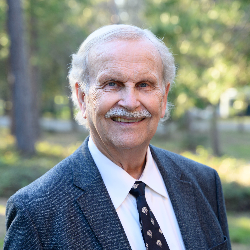
Dr. Erin Bigler
PhD
Dr. Erin D. Bigler is an Emeritus Professor
of Psychology and Neuroscience from Brigham Young University (BYU), who served
as Chair of the Psychology Department from 1996 through 2002. In 1990, he
established the Brain Imaging and Behavior Laboratory at BYU, which studies the
role of neuroimaging variables in cognitive and neurobehavioral disorders such
as traumatic brain injuries, neurodevelopmental disorders including autism and
learning disabilities, anoxic brain injuries and other acquired injuries of the
brain as well as aging and Alzheimer’s disease. He is an Adjunct Professor of
Psychiatry at the University of Utah and a Volunteer Professor of Neurology at
the University of California-Davis. In 2013, he was the Founding Director of
BYU’s Magnetic Resonance Imaging Research Facility.
Dr. Bigler has been practicing since 1975 and is a Diplomate in
clinical neuropsychology from the American Board of Professional Psychology. He
is a Past President of the National Academy of Neuropsychology (1989-1990) and
a Past President of the International Neuropsychological Society (2014-2015).
He has written several neuropsychological tests, authored and/or edited 11
textbooks, published over 300 peer-reviewed articles, and is one of the
founding associate editors for two journals in the field — the Journal of the
International Neuropsychological Society (JINS) and Brain Imaging and Behavior.
Dr. Bigler is also the recipient of numerous awards, including the
Distinguished Clinical Neuropsychologist Award from the National Academy of
Neuropsychology (1999) and the Karl G. Maeser Distinguished Faculty Lecturer Award
(1999).
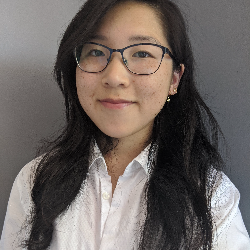
Mikaela Bubna
MSc
Mikaela Bubna works as a Research Assistant at the Concussion Clinic at the Hamilton Health Sciences. She graduated with an MSc from the University of Ottawa in 2021 specializing in Motor Control and earned her BSc from McMaster University in 2018 majoring in Psychology, Neuroscience, and Behaviour. Mikaela is broadly interested in brain injury and psychopathology and will be applying to clinical psychology programs this year.
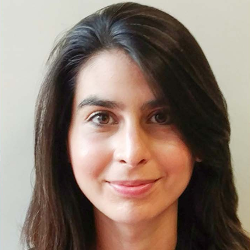
Dr. Indira Garcia Cordero
PhD
Dr. Indira Garcia Cordero obtained her PhD in Biological
Sciences from the Faculty of Exact and Natural Sciences of the University of
Buenos Aires, Argentina. During her PhD, Dr. Cordero studied patients with
neurodegenerative diseases (frontotemporal dementia and Alzheimer's disease)
and analyzed the structural and functional connectivity patterns associated
with social cognition deficits. Her work has been presented in multiple
conferences and published in recognized international peer-reviewed journals.
Currently, she is undergoing postdoctoral training at the Tanz Centre for
Research in Neurodegenerative Diseases. Her main interests are oriented towards
the analysis of neuroimaging and the physiopathology processes in dementia
patients. Dr. Cordero believes this will contribute to a better characterization
of these diseases, its risk factors and to the development of biomarkers.
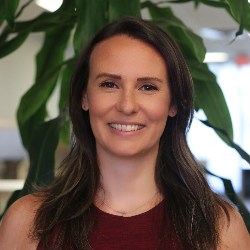
Stephanie Cowle
Stephanie Cowle has spent more than a decade working in the area of injury and trauma prevention. Stephanie is the Director of Knowledge Translation at Parachute, a national charity focused on preventing serious and fatal injuries through evidence-based solutions that advocate and educate. Stephanie leads Parachute’s national projects to improve concussion prevention, recognition and management across Canada, including the publication of the first-ever Canadian Guideline on Concussion in Sport. Stephanie has worked with 50 national sport bodies as well as government, health, and education stakeholders at national and provincial levels. She is a member of the Federal-Provincial/Territorial Work Group on Concussion in Sport and the Knowledge Translation Coordinator for the Canadian Concussion Network.
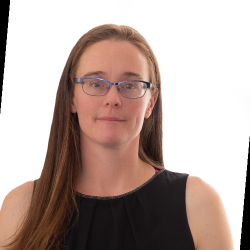
Dr. Jennifer Dawson
PhD
Dr. Jennifer Dawson is a Research Associate at the CHEO Research
Institute and is the project coordinator and guideline developer for the
PedsConcussion project (The Living Guideline for Pediatric Concussion Care).
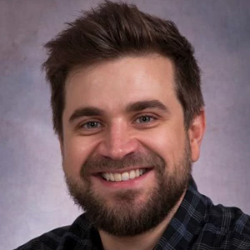
Dr. Benjamin Dunkley
PhD
Dr. Benjamin Dunkley is a Scientist in the Neurosciences
& Mental Health Program and Diagnostic Imaging at the the Hospital for Sick
Children, and Assistant Professor in Medical Imaging at the University of
Toronto.
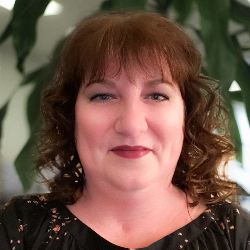
Pamela Fuselli
Pamela Fuselliis the President and CEO at Parachute. Pamela was the Executive Director at Safe Kids Canada and, during her tenure, was one of the four leaders who successfully led a process of national consultation and visioning, resulting in the formation of Parachute, Canada’s national charity dedicated to injury prevention. What really drives her is the heartbreaking knowledge that the majority of serious injuries and deaths are preventable. Pamela leads Parachute’s mission to turn evidence of what works into action, building strong relationships with stakeholders across Canada to achieve this mission. Over 20 years in the health care/injury prevention sector, Pamela’s work has focused on influencing public policy and public perceptions and knowledge with effective interventions. She strongly believes in collective impact, harnessing the strength of those seeking similar outcomes to achieve social change.
Judy Gargaro
BSc, MEd
Judy Gargaro is the Project Manager for the Neurotrauma Care
Pathways Project and was the Program Director for the ON Neurotrauma Foundation
- Acquired Brain Injury programme. Judy focuses on creating a Neurotrauma Care
Pathway Strategy, especially for those under-served by the healthcare system.
Other initiatives include developing a data strategy for neurotrauma, the ON
traumatic brain injury (TBI) report card, and implementing the Standards and
Clinical Practice Guidelines for concussion/mild TBI and for moderate to severe
TBI. In all this work, Judy collaborates with administrators, neurotrauma
clinicians (brain & spinal injury sectors) and policymakers to improve the
quality of care available to persons after all severities of neurotrauma.
Judy led and collaborated in clinical and academic settings
studying brain and spinal injury, mental illness, diabetes, and addiction. She
has 40 peer-reviewed publications and is an invited speaker on brain injury and
implementation topics.

Dr. Robin Green
PhD, CPsych
Dr. Robin Green is a Canada Research Chair (II) in traumatic brain injury and a Senior Scientist in the cognitive neurosciences at Toronto Rehab and scientist at theKITE Research Instituteat University Health Network. Dr. Green completed her PhD at Cambridge University, a post-doctoral fellowship at St. Thomas’ and Guys Hospital, London, England, and her clinical training in neuropsychology at the University Health Network in Toronto.Dr. Green has worked at Toronto Rehab for most of her career. She is currently the head of the Brain Discovery and Recovery Team, and she co-leads the Schroeder Brain Institute with four other scientists.She recently founded a provincial research centre for people with enduring effects of brain injuries/concussion. The centre provides remotely delivered clinical care to patients across Ontario, including Northern Ontario, through their participation in research. The centre is also collaborating with partners in other provinces to create a broader network, and seeks to establish international links. The interventions that are delivered and tested focus on enhancing cognitive and mood function, and improving brain health, with a particular focus on enhancing neurogenesis in the hippocampi.
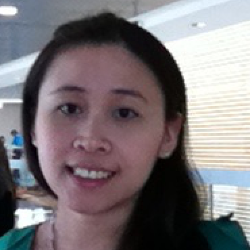
Dr. Alice Kam
MD, FRCPC
Dr. Alice Kam is a physical medicine and rehabilitation specialist and she is interested in medical education, curriculum development and assessment. She completed her MD at the University of Manitoba and her residency at the University of Toronto. To further develop her expertise in medical education, she completed her Master of Science in Community Health (Health Practitioner Teacher Education) in December 2021, following her completion of the Master Teacher Certificate, University of Toronto (U of T), in 2018. She is actively involved in medical education development. She is a graduate of Vernissage Health, Institute of Health Policy, Management and Evaluation, University of Toronto.
Dr. Kam enjoys medical education as her passion, particularly in the area of post-graduate medical education. To deepen her understanding of curriculum development, she initially completed a physiatry residents’ perception study on blended learning and received the Canadian Association of Physical Medicine and Rehabilitation (CAPMR) First Place Education Abstract Award in 2020. Following her blended learning research study, she is currently doing an educational scholarship on an innovative curriculum with a combination of evidence-based teaching techniques. Her educational scholarship is well-recognized by the University of Toronto student community, as she is the recipient of the University of Toronto Student Leadership Award in 2022.
Dr. Kam has trained many medical students, residents and fellows over the years. She is a curriculum developer of the Teaching and Learning Collaboration at the Centre of Faculty Development, University of Toronto. She recently has taken on leadership education to international health professionals. She is one of the key contributors to the American Congress Rehabilitation Medicine Leadership Development Course and the American Congress Rehabilitation Medicine Leadership Mentoring Program in 2022.
Clinically, Dr. Kam has a special interest in concussion
education.

Laura Langer
BSc
Laura Langer is an Analyst at the KITE Research Institute at
Toronto Rehab (University Health Network). She is a graduate of the University
of Toronto with a background in molecular neuroscience and biostatistics. She
has expertise in longitudinal cohort studies in neurological disorders such as
cerebral palsy, functional movement disorders, multiple sclerosis, Parkinson’s
disease, stroke, and traumatic brain injuries as well as administrative health
databases. She is the lead researcher on the Ontario Concussion Cohort (1.3
million people) and has written a clinical risk score, the TRICORDRR (Toronto
Rehabilitation Institute Concussion Outcomes Risk Determination and Rehab
Recommendations), for persisting post-concussion symptoms in adults in a cohort
of over half a million individuals.
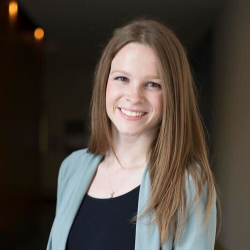
Stephanie McFarland
MSc, OT Reg (Ont.)
Stephanie McFarland has completed her MSc in Occupational Science
& Occupational Therapy at the University of Toronto. Stephanie has had
valuable experience working with pediatric concussion, traumatic/acquired brain
injury, mental health and project/change management.
Stephanie is currently working as an occupational therapist
at the Concussion Centre at Holland Bloorview Kids Rehab Hospital. She
support's youth and families with symptom management, return to school and
sport after concussion injuries. She also manages wide scale projects
consulting with healthcare providers and community organizations to ensure
consistency with best-practice guidelines at the ground level. Stephanie is
also a currently a member on the expert panel Peds Concussion Living
Guidelines, where she supports reviewing the literature and revising specific
recommendations around symptom management and return to school /sport.

Dr. David Mikulis
MD, FRCR
Dr. David J. Mikulis is Full Professor and Director of the Functional Neuroimaging Research Lab in the Joint Department of Medical Imaging at the University Health Network and the University of Toronto. The primary emphasis of this work has been translational research focusing on the application of novel imaging methods into the clinical environment. He established one of the first fMRI labs in Canada in 1993 and is currently involved in developing advanced neurovascular imaging methods with major program arms including: 1) quantitative measurement and clinical application of cerebrovascular reactivity (CVR) metrics leading to the development of “the brain stress test” (analogous to the cardiac stress test) that assess the effectiveness of the cerebral circulatory system in meeting the metabolic needs of the brain, 2) high resolution and functional imaging of intra and extra-cranial blood vessel walls that improves diagnostic accuracy for assessing diseases that directly affect blood vessels, and 3) discovery of a new method for measuring brain blood flow that does not require injection of contrast agents. Research in these areas has improved assessment of the structure, function, and performance of the vascular system in health and disease. These capabilities have further defined the important roles that abnormal vascular performance measures have in the pathophysiology of a number of conditions including for example Alzheimer’s and vascular dementias, and in improving diagnostic accuracy of acute concussion. Translation of these methods has been achieved locally, nationally, and internationally confirming the importance of these tools in research and clinical settings.

Swapna Mylabathula
MD/PhD Candidate
Swapna Mylabathula
is an MD/PhD Candidate at the University of Toronto, supervised by Dr. Charles
Tator. Her research focuses on concussion public policy. Together with her twin
sister Sandhya, she co-developed a Pan-Canadian Concussion Strategy, consulted
on provincial concussion policy, co-delivered a TEDx Talk, and gave an invited
testimony to the Subcommittee on Sport-Related Concussions in Canada of the
Standing Committee on Health. Swapna has been involved in the field of
concussions over the past decade as an advocate and policy consultant across
Canada, as well as a researcher and clinical trainee at the University of Toronto.
She is also an award-winning science communicator, active under the STEAM
Sisters banner in classrooms and on podcasts, digital media, and television.
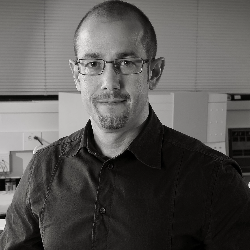
Dr. Shawn Rhind
PhD
Dr. Shawn Rhind earned his doctorate in Immunobiology from
the University of Toronto. He completed an NSERC Postdoctoral Fellowship with
the Defence & Civil Institute of Environmental Medicine (DCIEM) and US Army
Research Institute of Environmental Medicine (USARIEM), examining biomolecular
interactions between neuroendocrine-immune systems under severe physiological
stress and environmental extremes and their impact on health and performance.
Today, Dr. Rhind is a senior Defense Scientist in the military Operational
Health Group at DRDC Toronto Research Centre and an Associate Professor at the
University of Toronto, where he leads an integrative – molecular to systemic –
translational research team. His research spans basic multi-Omics laboratory
science to human clinical trials, and is currently focused on elucidating the
biological basis and therapeutic interventions for combat-related operational
stress and physical trauma, including post-traumatic stress disorder,
battlefield care after hemorrhagic shock, and the spectrum of traumatic brain
injury/blast related neurotrauma.

Dr. Lesley Ruttan
PhD, CPsych
Dr. Lesley Ruttan is a registered psychologist practicing in both clinical neuropsychology and clinical psychology. She splits her time between an out-patient acquired brain injury neuro-rehabilitation program at Toronto Rehabilitation Institute (TRI)/University Health Network (UHN) and private practice. Lesley is interested in the enduring effects of concussion and has been involved with the Canadian Concussion Centre for the past several years providing education and support workshops and more recently, moderating webinars to individuals experiencing persistent post-concussive symptoms, their families and healthcare providers. She is also involved in research with the Hull-Ellis Concussion Clinic at Toronto Rehab/UHN looking prospectively at individuals that have suffered concussions and their recovery course. Lesley co-chairs the UNH Psychology Professional Council and Psychology Education and Training Committee. She has been supervising graduate level practicum students, pre-doctoral residents and post-doctoral fellows for several years.
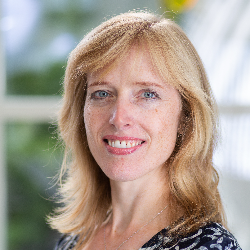
Dr. Hana Mala Rytter
PhD
Dr. Hana Malá Rytter (HMR) is Associate Professor of
Neuropsychology at the Department of Neurology, University Hospital
Bispebjerg-Frederiksberg and the Department of Psychology, University of
Copenhagen, Denmark. She has received her original training as psychologist at
Palacky University, Olomouc, Czech Republic and moved on to neuroscientific
studies. She received her graduate training at the Unit for Cognitive
Neuroscience, University of Copenhagen, Denmark and the Stroke and
Neuroplasticity Laboratory, St. John's University, NF, Canada. For the last
decade, her professional interests have revolved around the field of
concussion/mild traumatic brain injury, where she solves both clinical and
academic tasks. Since 2019 she has been appointed to head the Danish Concussion
Center established under the auspices of Danish Ministry of Health. The center
is a national resource center conveying current evidence-based knowledge on
concussion and generating new data in the field in close collaborations with
academic and clinical milieus across the country. Lately, she chaired the
preparation of the Danish national clinical guidelines for non-pharmacological
treatments of persistent post-concussion symptoms published in 2021. Hana
frequently collaborates with Danish health and social sector authorities on
developing the field of brain injury and brain injury rehabilitation. She is an
engaged proponent of timely, interdisciplinary, and coordinated rehabilitation
and contributes regularly with knowledge dissemination in and outside academia.
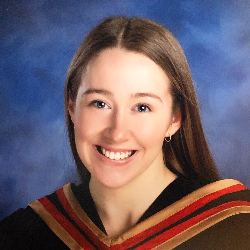
Olivia Scott
MSc
Olivia Scott is a Clinical Research Assistant at the
Canadian Concussion Centre. She completed her MSc in Clinical Neuroscience at
King’s College London (UK) in 2020 and her BScH in Life Science at Queen’s
University in 2019. Her Master’s thesis focused on traumatic brain injury as a
risk factor for later neurodegenerative disease. Olivia’s research interests
include understanding the factors that contribute to recovery course following
concussion and the link between concussion and neurodegenerative processes.
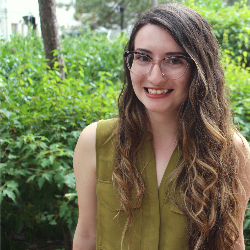
Sonja Stojanovski
PhD Candidate
Sonja Stojanovski is a PhD candidate at the University of
Toronto in the department of Physiology. She studies the effect of mild
traumatic brain injury (TBI) in childhood on white matter microstructure and
organization and the role that white matter perturbations play in attention
problems, which are a common sequelae of TBI.

Dr. Carmela Tartaglia
MD, FRCPC
Dr. Carmela Tartaglia is an associate professor at the University of Toronto. She received her medical degree from McGill University, completed her residency at the University of Western Ontario and did three years of clinical/research fellowship in Cognitive/Behavioral neurology at the University of California, San Francisco Memory and Aging Center. She maintains a cognitive/behavioral clinic within the UHN Memory Clinic where she sees patients with neurodegenerative diseases with a focus on Frontotemporal lobar degeneration-related syndromes.As well, she is interested in the delayed effects of concussions and sees patients with post-concussion syndrome and those with multiple concussions who are at risk of developing a neurodegenerative disease.She holds the Marion and Gerald Soloway Chair in Brain Injury and Concussion Research.She uses novel imaging techniques in conjunction with proteomics, pathology and genetics to better diagnose and understand the pathological substrates that cause cognitive, behavioral and motoric dysfunction. She runs parallel biomarker discovery programs in frontotemporal lobar degeneration and post-concussion syndrome. The goal of her research program is to develop biomarkers for early detection of disease so as to bring precision medicine and targeted, early treatments to her patients.
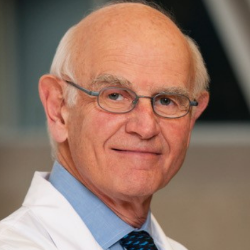
Dr. Charles Tator
OC, MD, PhD, FRCSC, FACS
Professor of Neurosurgery, Division of Neurosurgery
University of Toronto and Toronto Western Hospital
Emeritus Scientist, Krembil Brain Institute
Director, Canadian Concussion Centre
Founder, ThinkFirst Canada, and Parachute Canada
Dr. Charles Tator was born at the Toronto General Hospital, part of UHN in which he has spent most of his career practicing, teaching and doing research in neurosurgery. He graduated from the Faculty of Medicine, University of Toronto. As part of neurosurgery training, his research in brain tumours was at the Banting Institute and received MA and Ph.D. degrees. He was the first full-time neurosurgeon at Sunnybrook Hospital and then moved to Toronto Western as Neurosurgery chief. He was Chair of the Division of Neurosurgery at University of Toronto, 1989-1999, and the first Campeau-Tator Chair in Neurosurgery. His main clinical interests were initially spinal cord injury and cerebellopontine angle tumours, but more recently he has focused practice and research in spine and concussion. He has had a career-long role in injury prevention and was a founder of ThinkFirst Canada and Parachute Canada, national injury prevention programs. He is an Officer of the Order of Canada and an inductee in the Canadian Sports Hall of Fame and the Canadian Medical Hall of Fame.
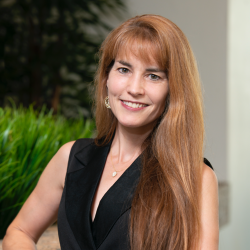
Dr. Eve Valera
PhD
Dr. Eve Valera, Associate Professor in Psychiatry at Harvard
Medical School and Research Scientist at Massachusetts General Hospital has
worked in the domestic violence field for over 25 years using a range of
methodologies to understand the neural, cognitive and psychological
consequences of brain injuries from intimate-partner violence, with her most
recent focus being on transgender women.She regularly lectures
internationally (e.g., South Korea, Spain, France, Colombia, Canada, China,
Japan) and has received national and international recognition (e.g.,
interviewed in National Public Radio and local TV news, NYT Magazine, USA
Today, Forbes, CBC Canadian radio).Within the past 3 years she has
been the recipient of the prestigious Robert D. VoogtFoundersAward,Rappaport
Research Fellowship in Neurology, PINK Concussions Domestic Violence Award and
the Anne Klibanski Visiting Scholars Award. She is passionate about raising
awareness and educating all relevant stakeholders about this tremendously
overlooked public health problem.
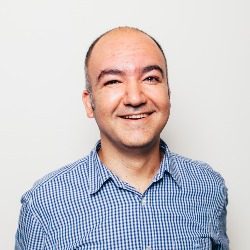
Dr. Oshin Vartanian
PhD
Dr. Oshin Vartanian, cognitive neuroscientist, is a Defence
Scientist at Defence Research and Development Canada, Toronto Research Centre,
an Adjunct Associate Professor in the Department of Psychology at the
University of Toronto—Scarborough, and a cross-appointed Graduate Faculty
member at the University of Toronto. His co-edited volumes include Neuroscience
of Decision Making (2011, Psychology Press), Neuroscience of Creativity (2013,
The MIT Press), and The Cambridge Handbook of the Neuroscience of Creativity
(2018, Cambridge University Press). His research focuses on the effects of
various operational and environmental stressors on the health, wellbeing and
performance of military personnel.
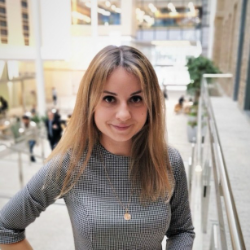
Anna Vasilevskaya
PhD Candidate
Anna Vasilevskaya is a 5th year PhD student at the
University of Toronto under the supervision of Dr Carmela Tartaglia. She is a
Krembil Studentship in Dementia and Queen Elizabeth Scholar, and her research
interests lay in the field of fluid and neuroimaging biomarker discovery in
neurodegenerative diseases.

Dr. Keith Yeates
PhD, ABPP, FCAHS, FRSC
Dr. Keith Owen Yeates is the Ronald and Irene Ward Chair in Pediatric Brain Injury, Professor and Head of the Department of Psychology, and Adjunct Professor of Pediatrics and Clinical Neurosciences at the University of Calgary, in Alberta, Canada. He is the inaugural Chair of the Canadian Concussion Network. He has a 30-year track record of funded research focusing on the outcomes of childhood brain disorders, especially traumatic brain injury. A recent published bibliometric analysis indicated he has authored more of the top-100 cited papers in pediatric TBI than any other researcher. Dr. Yeates was co-lead author of the report of the Centers for Disease Control (CDC) Expert Panel on Acute Diagnosis and Management of Mild Traumatic Brain Injury among Children and Adolescents and will be an invited expert panel member at the 6th International Consensus Conference on Concussion in Sport. He was previously Associate Editor of the Journal of the International Neuropsychological Society and is currently the Editor-in-Chief of Neuropsychology. Dr. Yeates has served as President of the Society of Clinical Neuropsychology (Division 40 of the American Psychological Association) and of the International Neuropsychological Society. He is a Fellow of the American Psychological Association, Canadian Academy of Health Sciences, and the Royal Society of Canada. He has been ranked as one of the top 10 most influential neuropsychologists in North America over the past 50 years.
Date
Saturday April 30, 2022
8:00 AM - 5:00 PM EST
All times are in Eastern Standard Time (EST)
Location
Virtual Event via Zoom
The event link was emailed to registrants. Last minute registrants will find the join link in their registration confirmation email.
Rates
| Regular registration | $150.00 |
|---|---|
| Student, Post-doc, Resident, and Fellow Rate* | $50.00 |
*A valid copy of your student ID or badge or letter from a supervisor confirming your status as a student/fellow must be uploaded during the registration process in order for to have the rate honoured.
More Information
Conference Services
conferences@uhn.ca
Canadian Concussion Centre Website
Click here to visit the CCC website
Concussion Annual Public Forum
Concussions in the Home and Workplace, including Falls and Interpersonal Violence: Prevention and Treatment
Click here to register for the Public Forum

 Copyright© 2017 | MYConference Suite Registration | D.E. Systems | All Right Reserved.
Copyright© 2017 | MYConference Suite Registration | D.E. Systems | All Right Reserved.